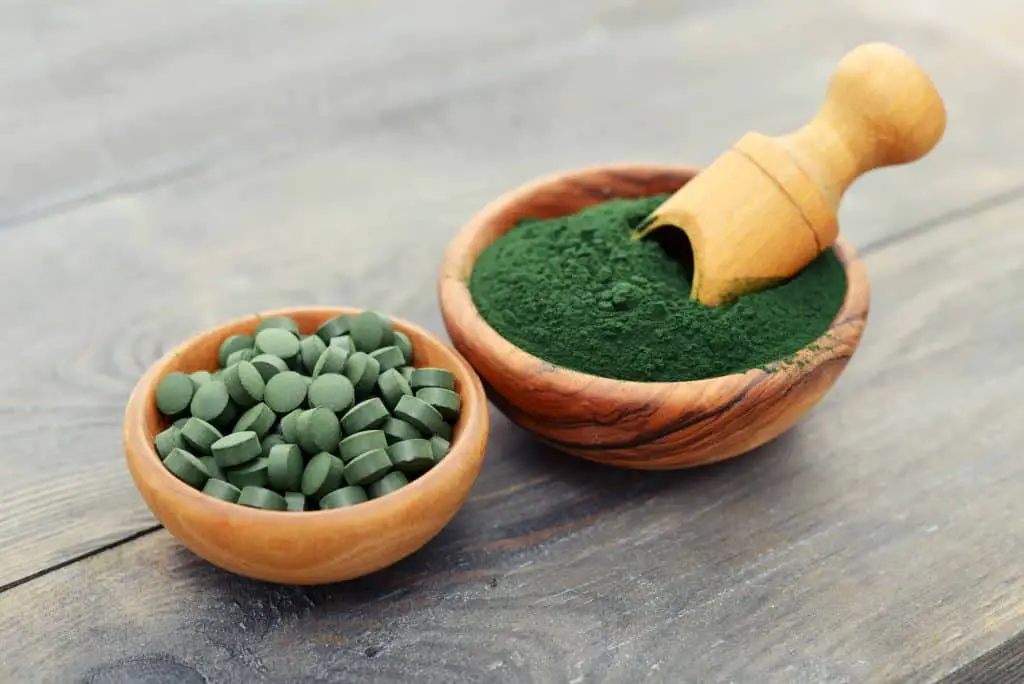Last Updated on June 22, 2022
Two of the most famous green superfoods today are Moringa and Spirulina. One is a plant and the other is a filamentous cyanobacterium, two different types of food yet similar in some nutritional value. But which of the two is better? Let the Spirulina vs. Moringa battle begins.
Battle of the greens: Nutritional Content Comparison
The battle is tough between Spirulina and Moringa. To clearly see the winner, it’s better to go to the chart and compare the essential nutrients they possess.
The Tale of the Tape
Moringa:
- It possesses all the nutrients that you can find in Spirulina
- It has three vitamins and three minerals that you cannot find in Spirulina
- It has higher amounts and percentage of six nutrients that Spirulina also has.
Spirulina:
- It lacks the six vitamins and minerals that you can find in Moringa;
- Spirulina shows a more significant advantage of 8 nutrients than Moringa, particularly on protein, sodium, and thiamine (B1), and energy.
Other Comparisons
Other sources also show that Moringa is higher in Calcium, Iron, Fiber, Vitamin A, Potassium, Carbohydrates, and Sodium. Spirulina is higher in protein, Vitamin C, and calories. This leaves a score of 7 over 3 three in favor of Moringa.
Potential Health Benefits of Moringa
1. It has high levels of antioxidants that combat free radicals that cause oxidative stress, an imbalance in your body’s system is connected to type 2 diabetes, and chronic heart diseases.
2. It lowers the level of blood sugar in the body that can eventually lead to diabetes, which leads to different complications.
3. Possess anti-inflammatory properties, reducing the inflammation caused by injury and infection.
4. It lowers cholesterol levels in your body that can lead to stroke and heart diseases.
5. Moringa can protect you from arsenic toxicity, a kind of poisoning caused by exposure to arsenic, a chemical found in contaminated groundwater, rocks, woods preserved by arsenic, and infected soils.
Potential Health Benefits of Spirulina
1. Health-boosting benefits
2. Spirulina’s nutritional profile is excellent, containing 11 vitamins and minerals that improve your body’s health condition.
3. Spirulina contains an essential amount of nutrients that help your body function well and boost its metabolism leading to loss of weight.
4. According to a study, spirulina can improve your gut health. It can easily be digested because it has less fiber.
5. Spirulina helps prevent heart problems by reducing the body’s blood pressure and lowering down your body’s cholesterol.
6. If you have diabetes, Spirulina helps regulate your body’s blood sugar level to help you manage this condition.
7. It also protects you from toxic chemicals like lead, arsenic, iron, mercury, and fluoride.
8. Your allergic problems can go away with Spirulina. A study shows that Spirulina helps reduce your body’s histamine levels and inflammation in your nasal area.
9. Spirulina provides excellent support for your mental health issues. A study in 2018 shows that spirulina supports your body’s serotonin production to relieve mental conditions such as anxiety and depression.
Read more about Where To Buy Spirulina & How To Identify Original Spirulina
Learn How To Grow Spirulina At Home
Side Effects, Interactions, Dosage, and Warning
Moringa
Side Effects: The leaves, seeds, and fruits of Moringa are safe to eat and applied on the skin with no known side effects.
Warning: The root and its extracts are possible to have a toxic substance that can lead to paralysis and death.
The chemicals in the flowers or bark and the root of Moringa is likely unsafe for pregnant or breastfeeding women.
Dosage: Six grams of daily intake of Moringa is the recommended dosage.
Interactions: Moringa might cause the liver to slowly breakdown of other medicines. Side effects of these medicines might increase.
Spirulina
Side effects: Uncontaminated Spirulina is safe to use.
Warnings: Contaminated spirulina is harmful causing weakness, nausea, stomach pain, vomiting, liver damage, thirst, shock, rapid heart rate and death.
There had been no reports about the effects of spirulina on pregnant and lactating mothers. But it is better to remain on the safe side.
Auto-immune diseases and Phenylketonuria might worsen because Spirulina might increase body immunity and phenylalanine.
Interactions: Spirulina might interact with immunosuppressant medications.
Dosage: Proper intake of spirulina was not specified and may vary due to the condition of the person.
How to Incorporate Spirulina into Your Diet
In the next video, you can see 3 super easy ways to use Spirulina Powder.
Conclusion
When it comes to the number of nutrients and the levels of vitamins and minerals, Moringa is clearly the winner. But it doesn’t hide the fact that Spirulina also provides great benefits for your body’s health. Both are highly beneficial as they play a significant role in improving your body’s health condition as you use their products daily.
Place your comments and questions down below.

Barbara is an environmental activist and sustainability advocate who loves living green and sustainable. She firmly believes in reducing her carbon footprint and has been making great strides towards achieving this goal. Barbara is a vegan and avid recycler and has been actively involved in community gardens and other green initiatives. She is passionate about spreading awareness about the importance of living in a sustainable and eco–friendly manner. Barbara is always looking for ways to make a difference in her community and beyond. She is a huge advocate for preserving nature and the planet for future generations.

